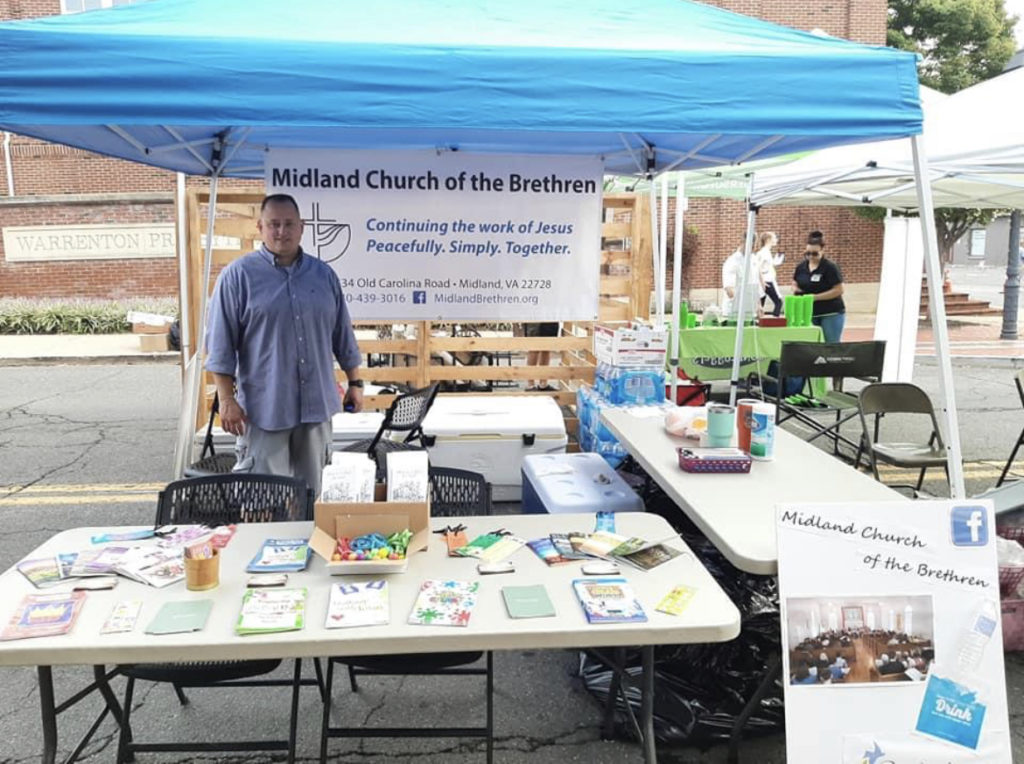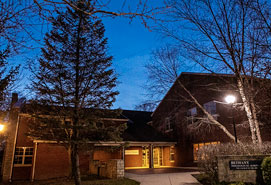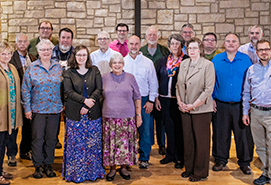Seeking New Ministries

For many pastors, thinking about the future of pastoral ministry involves rethinking many of the practices and areas of focus that have long been assumed to be most important.
“Sunday morning worship will always be important, but when we gather, we focus on offering our lives to God for service. That makes it a more meaningful experience,” says Richard Wehrle, who is pursuing both the Master of Divinity and Master of Arts in Social and Spiritual Transformation, the pastor of Midland Church of the Brethren in Virginia.
As is the case at most churches, Sunday morning attendance at Midland has not returned to pre-pandemic levels. And according to Wehrle the real energy in the congregation comes not from gathering in pews but in figuring out, as a church community, how God is calling them to use the resources they have been given to positively impact their community, the nation and the world. This shared focus has filled the congregation with a newfound sense of purpose and possibility.
Located in Fauquier County, Virginia, a largely rural area known for horse farms and vineyards, that has more recently attracted a growing population that commutes to work in the Washington, DC area. This growth in population has led to extreme storage of affordable housing in the area, and as in other areas in the country, there are those that struggle with poverty and food insecurity.
The Midland Church was the first Brethren congregation in Northern Virginia, founded in 1883. Its members planted the churches in Manassas, and Nokesville. Its building is set on almost 50 acres of what has become prized real estate.
Which brings us back to the question of how to best use precious resources.
The congregation has partnered with Growing Hope Globally, a local farmer, and several other Northern Virginia congregations including Nokesville, Manassas, Oakton and Woodbridge to raise grain on the property, with a plan to add greenhouses — all in support of food ministries that help sustainable food programs in the Western Highlands of Guatemala. A program called Feed My Sheep delivers fresh produce and non-perishable items to 50 families a week in partnership with other area congregations.
The congregation is also in the infancy stages of discernment with a local non-profit to offer affordable housing solutions on part of their property. In addition to helping to address community needs, have helped the congregation gain a shared understanding of their mission.
“I think these projects are definitely stirring the hearts of people,” says Wehrle. “People are really excited and engaged. There is definite energy and excitement here.”








 Green Circle: Bethany invests in 100% renewable energy.
Green Circle: Bethany invests in 100% renewable energy.